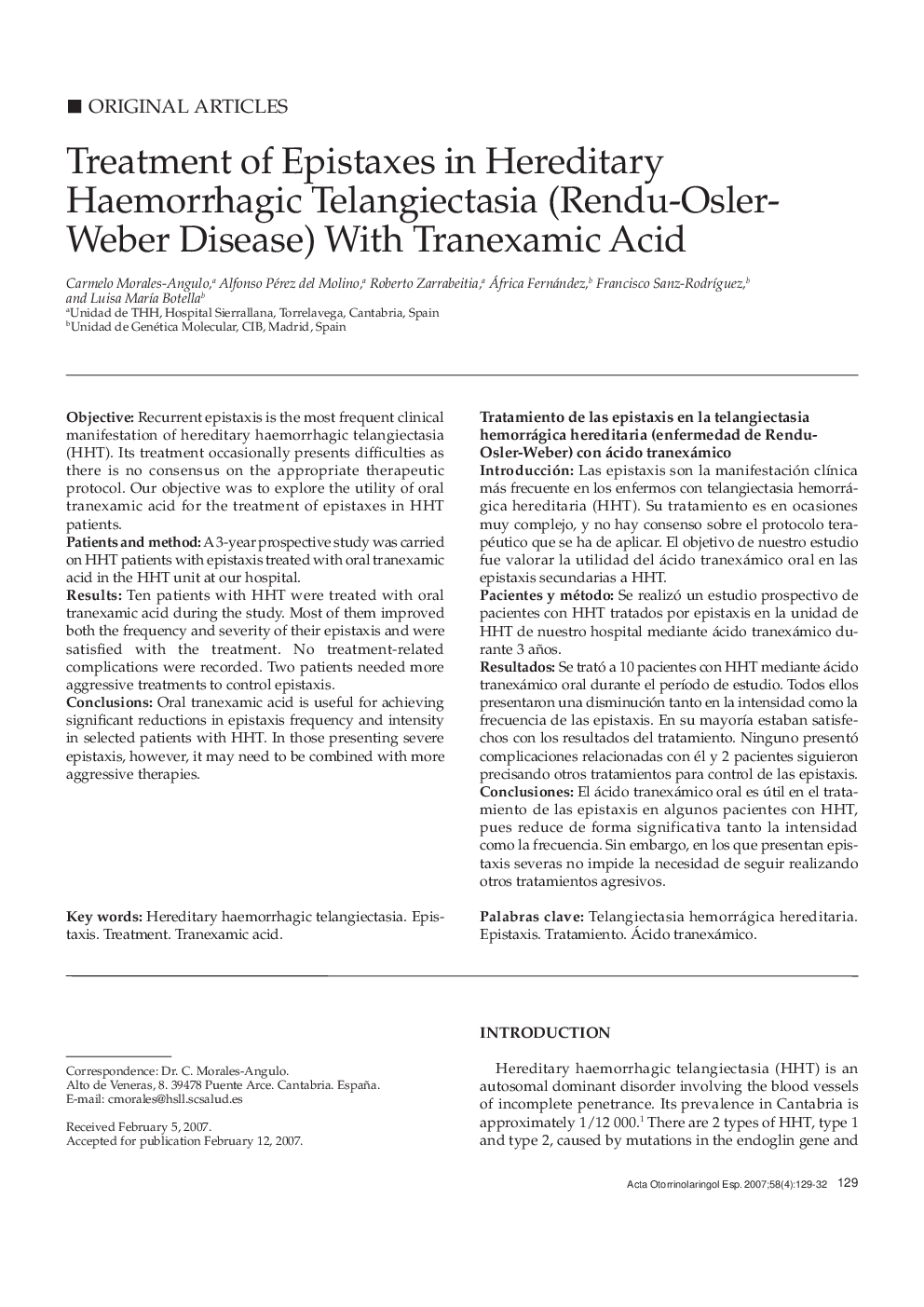| Article ID | Journal | Published Year | Pages | File Type |
|---|---|---|---|---|
| 4101388 | Acta Otorrinolaringologica (English Edition) | 2007 | 4 Pages |
ObjectiveRecurrent epistaxis is the most frequent clinical manifestation of hereditary haemorrhagic telangiectasia (HHT). Its treatment occasionally presents difficulties as there is no consensus on the appropriate therapeutic protocol. Our objective was to explore the utility of oral tranexamic acid for the treatment of epistaxes in HHT patients.Patients and methodA3-year prospective study was carried on HHT patients with epistaxis treated with oral tranexamic acid in the HHT unit at our hospital.ResultsTen patients with HHT were treated with oral tranexamic acid during the study. Most of them improved both the frequency and severity of their epistaxis and were satisfied with the treatment. No treatment-related complications were recorded. Two patients needed more aggressive treatments to control epistaxis.ConclusionsOral tranexamic acid is useful for achieving significant reductions in epistaxis frequency and intensity in selected patients with HHT. In those presenting severe epistaxis, however, it may need to be combined with more aggressive therapies.
IntroducciónLas epistaxis son la manifestación clínica más frecuente en los enfermos con telangiectasia hemorrágica hereditaria (HHT). Su tratamiento es en ocasiones muy complejo, y no hay consenso sobre el protocolo terapéutico que se ha de aplicar. El objetivo de nuestro estudio fue valorar la utilidad del ácido tranexámico oral en las epistaxis secundarias a HHT.Pacientes y métodoSe realizó un estudio prospectivo de pacientes con HHT tratados por epistaxis en la unidad de HHT de nuestro hospital mediante ácido tranexámico durante 3 años.ResultadosSe trató a 10 pacientes con HHT mediante ácido tranexámico oral durante el período de estudio. Todos ellos presentaron una disminución tanto en la intensidad como la frecuencia de las epistaxis. En su mayoría estaban satisfechos con los resultados del tratamiento. Ninguno presentó complicaciones relacionadas con él y 2 pacientes siguieron precisando otros tratamientos para control de las epistaxis.ConclusionesEl ácido tranexámico oral es útil en el tratamiento de las epistaxis en algunos pacientes con HHT, pues reduce de forma significativa tanto la intensidad como la frecuencia. Sin embargo, en los que presentan epistaxis severas no impide la necesidad de seguir realizando otros tratamientos agresivos.
